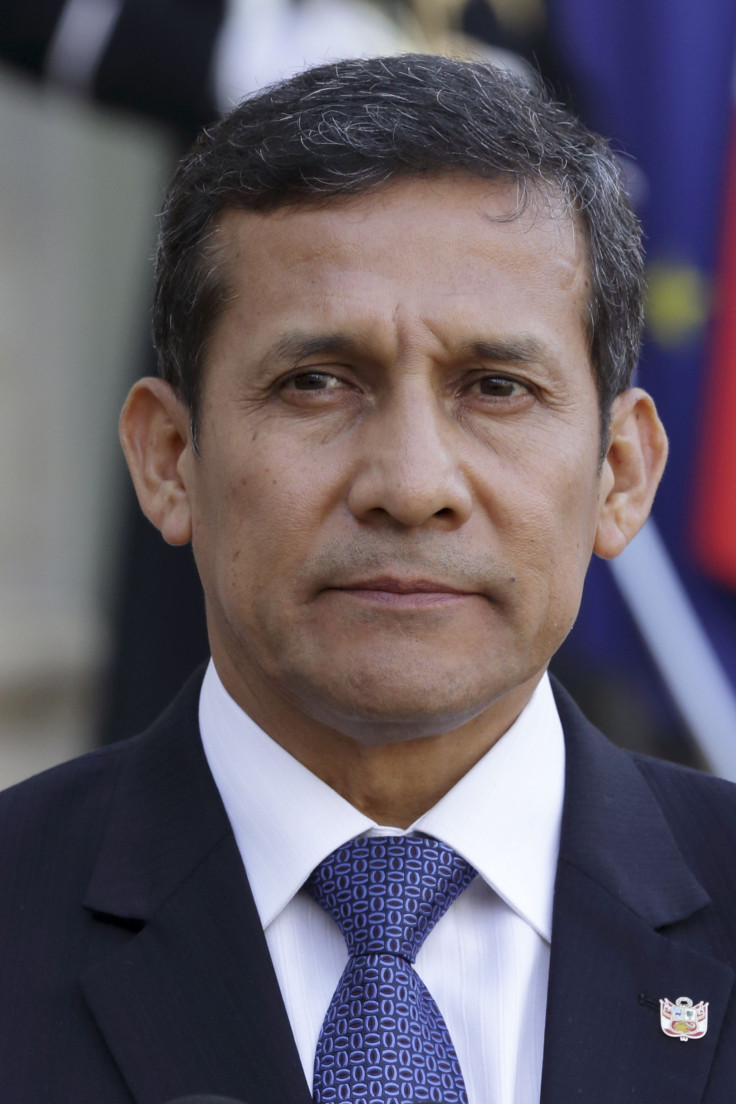Lima's Homicides Prompt Strong Response From Peruvian President Humala

Peruvian President Ollanta Humala has put 1,000 extra police officers on the streets of the capital, Lima, following two recent high-profile murders.
Last week, a businessman was robbed and shot dead less than a block from the main police station, and on Saturday, Luis Choy, a photojournalist for Peru’s largest newspaper, El Comercio, was gunned down in broad daylight outside his home in what was considered a safe neighborhood.
“I lament that another Peruvian has fallen victim to crime. Even more so because we got to know Luis Choy during the campaign," Humala said of Choy, who had covered the 2011 election, Reuters reported.
While the motive for Choy’s assassination remains undetermined, he was believed to be the target of a hit since nothing was taken from his home, according to the Peruvian Times.
The murders draw attention to the ineffectiveness of law enforcement in Lima, which has one of the highest crimes rates in Latin America.
“Crime is a constant problem in Lima and most other parts of Peru,” reads a 2012 report from the U.S. State Department.
“Armed robberies, assaults, express kidnappings, carjackings, burglaries, and petty theft are a daily fact of life. Street crime is prevalent in most urban areas, especially in Lima,” it adds.
Homicides, however, are not as prevalent in Peru as in some other South American countries.
According to the most recent data from United Nations Office on Drugs and Crime, the homicide rate was 10.3 per 100,000 people in 2010, compared to 33.4 in Colombia and 21 in Brazil. Argentina had the lowest rate with 3.4.
Nevertheless, the murder rate nearly doubled in Peru within five years, demonstrating an increasing trend of violence.
The State Department report says corruption and insufficient resources are major problems for Peruvian law enforcement.
“Morale is poor, pay is low, and corruption is rampant, which has created an overall negative image of the police in the minds of the populace,” the report says. “Police have either solicited bribes in order to supplement their salaries or readily accepted bribes when offered.”
“Police response to reported crimes is notoriously slow and in many cases largely ineffective,” it adds. “There is a police presence in all major cities and towns, but they are often unable to respond to calls for service and are incapable of proactively deterring, investigating and reducing crime.”
Poor public esteem for law enforcement and rising crime in Peru could threaten support for the relatively popular Humala administration, whose approval rating stands at 54 percent, according to polling firm Ipsos.
© Copyright IBTimes 2024. All rights reserved.





















